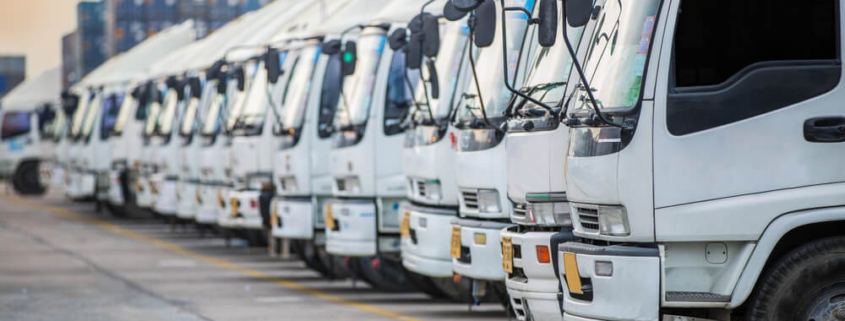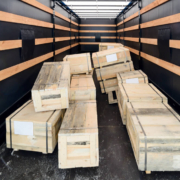How Do Trucking Company Safety Standards Affect Accident Rates?
It’s impossible to ignore just how fundamental the trucking industry is to the American economy. If you’re on the highway on any given weekday, you’ll likely see trucks from dozens of companies bringing vital materials, food, and finished goods to communities across the country. As this industry has evolved, so too have the safety standards surrounding it. While many safety standards are implemented at a federal level, each company also has its own standards to uphold.
Learn more about safety standards utilized in this field and how they keep other drivers safe. For help with your truck accident claim, contact Bailey, Javins & Carter at 678-210-3292 to talk to one of our Atlanta truck accident lawyers.
The Role of Safety Standards
Operating large commercial trucks comes with substantial risks, and even one poor judgment call or error can cause fatal and severe injuries. Safety standards are one way to mitigate these risks. By holding truck drivers to a set of baseline standards, trucking companies don’t have to rely solely on their drivers’ judgment and risk tolerance. Drivers tend to overestimate their own skills and propensity for safety, which often leads them to take dangerous and avoidable risks.
Safety standards cover a wide range of behaviors and requirements, allowing trucking companies to decide how much or how little risk they are willing to accept. Covered topics include vehicle maintenance, driver qualifications, load securement, hours of service, drug and alcohol screening, and break requirements. It’s important to note that while regulations may be stricter than those set by the state or federal government, they can never be looser than those set at these levels.
Compliance With Safety Standards
Compliance is a key part of making America’s roads safer. All of the safety standards in the world won’t do anything if companies do not enforce them. Trucking companies are legally obligated to uphold federal trucking safety standards and can be fined if they do not. To ensure compliance with standards and avoid financial penalties, companies create comprehensive safety policies, require drivers to attend training on safety procedures, and mandate documentation of each driver’s daily work.
Companies and regulatory agencies both play a role in ensuring compliance with safety standards. Companies are the first line of defense, and by addressing non-compliance early, they may be able to avoid more serious disciplinary action from regulatory agencies. Companies should have staff members whose sole job is to inspect and audit driver records, driving logs, maintenance logs, and electronic logging devices.
Regulatory agencies also perform their own inspections and audits. They do so on a scheduled routine basis, randomly, and when tipped off to potential non-compliance. Randomized checks motivate companies to stay on top of enforcement and weed out drivers who cause problems early.
How Safety Standards Impact Accident Rates
Safety standards were developed specifically to reduce accident rates and make the roads safer for everyone. Some of the key ways these standards improve road safety include:
- Driver qualifications: Strict driver requirements protect the public from untrained or unsafe drivers. While the government has its own set of standards for commercial drivers, some companies have more stringent hiring requirements to ensure they have only the best representing them.
- Hours of service: Hours of service requirements are one of the most important parts of FMCSA standards. The longer a driver is on the road, the more likely they are to become fatigued and distracted. This significantly increases their likelihood of being involved in a crash. HOS regulations mandate regular breaks and long periods away from work.
- Inspection and maintenance: Trucks that are regularly inspected and have routine maintenance schedules are less likely to break down or have tire blowouts on the road.
- Loading and unloading: Careful loading and unloading procedures lead to balanced loads and trucks that have not been put under unnecessary strain, creating better outcomes for everyone.
- Drug and alcohol screening: It is not uncommon for companies to screen upon hiring, after an accident, and randomly. Doing so keeps impaired drivers off of the road.
Start Your Truck Accident Claim with Bailey, Javins & Carter
The sooner you begin your truck accident claim with the team at Bailey, Javins & Carter, the sooner we can begin fighting for you. Schedule your free case evaluation now by calling us at 678-210-3292 or connecting with our team online.

 How Do Trucking Company Safety Standards Affect Accident Rates?
How Do Trucking Company Safety Standards Affect Accident Rates? How Do Cargo Loading and Securement Practices Contribute to Truck Accidents?
How Do Cargo Loading and Securement Practices Contribute to Truck Accidents?


 PTSD After a Trucking Accident
PTSD After a Trucking Accident
 Social Media and Truck Accidents
Social Media and Truck Accidents Liability in Multi-Vehicle Trucking Accidents
Liability in Multi-Vehicle Trucking Accidents